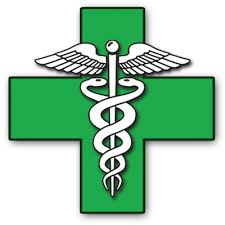Here’s a question that follows the radical reworking of medical marijuana regulations proposed yesterday by a state working group comprised of the Liquor Control Board and the Departments of Health and Revenue: Why would anyone even bother to get a medical pot authorization if the recommendations go into effect?
After all, the recommendations would eliminate patients’ right to grow marijuana for themselves, slash the amount of pot they are allowed to possess and funnel everyone into the recreational pot stores soon to be licensed by the Liquor Control Board. That means virtually all of the roughly 200 dispensaries currently located in Seattle would disappear. In their place: just 21 licensed stores—334 in the state as a whole.
“This is sickening,” says lawyer and medical marijuana activist Douglas Hiatt. “For the better part of 15 years, we’ve been fighting for the legitamacy of medical marijuana. And in five seconds, they’re just tossing it away.”
Yet, as noted by Hilary Bricken, a lawyer representing many of the city’s marijuana entrepreneurs, there are still a few reasons why people might want an authorization card. First and foremost, those holding such a card would be exempt from retail sales taxes, typically adding up to about 10 percent of a purchase.
Yes, growers and retailers serving patients would still be subject to hefty excise and B&O taxes, and that could mean the prices will be higher than in dispensaries. But the willingness to forgo sales taxes would be a concession by the state, which has been insisting to dispensaries that they collect those taxes. “I have at least two clients who have gotten audit letters from the state Department of Revenue,” Bricken says.
Note, patients wanting this tax exemption would only be able to buy pot at stores “endorsed” by the state. What that means, exactly, is not explained.
The second reason an authorization card would be worth pursuing is that it would entitle its holder to three ounces of pot. That’s far less than the 24 ounces currently allowed patients, but three times the amount average users can legally possess.
Finally, pot is illegal for any recreational user under 21, but an underage patient would be able to access marijuana, with those under 18 requiring the consent of a parent or guardian.
So the notion of medical marijuana may continue to exist, despite the desire of people like legislator Christopher Hurst to simply scrap the whole thing, which he basically considers a “criminal enterprise.” At the same time, there is no question that it will be severely curtailed.
Whether or not this meets the spirit of the 1998 state law that legalized medical marijuana is open to debate. Bricken argues that the scrapping of the right to home grows would violate the law’s intent and potentially harm seriously-ill patients who might have trouble getting to the relatively few stores there will be.
Hiatt adds that the three-ounce limit won’t get patients very far, especialy if they consume pot in baked goods. “Eaters use five times more than smokers,” he says. He also notes that, under I-502, pot stores aren’t able to even discuss the medical attributes of marijuana.
But while the legislature, which has the final say, may tinker with the recommendations, no one doubts that it will pass something like it. The Department of Justice has made it clear that while it will tolerate Initiative 502, it will not abide an unregulated medical marijuana system that U.S. Attorney Jenny Durkan has called “untenable.”








